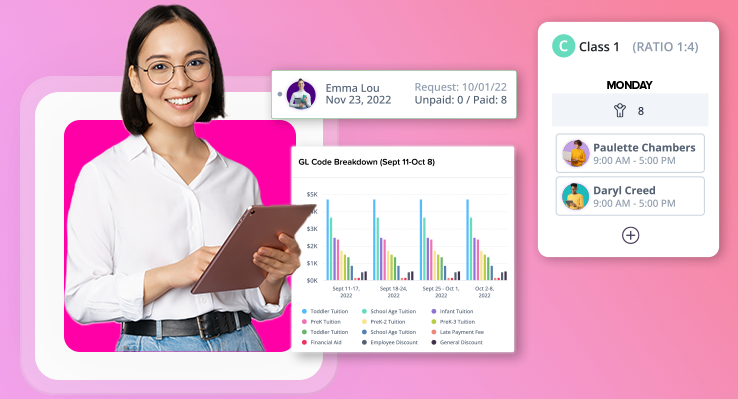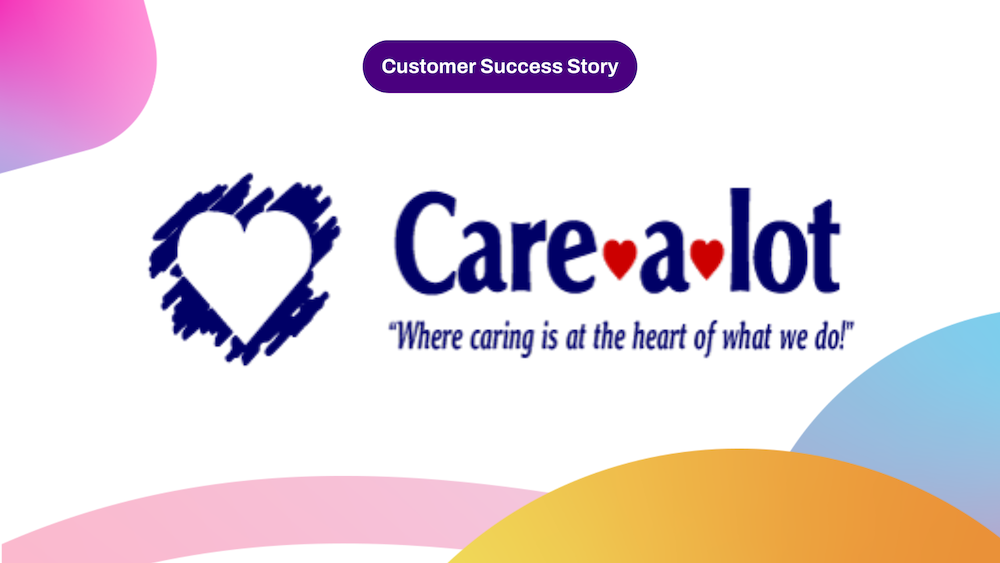Developmental milestones are key indicators of a child's developmental health. While children may move at their own pace, these milestones serve as a guide to ensure proper development and can help catch possible developmental delays. Tracking developmental milestones helps parents and families understand if their child is developing as expected, and plan early intervention if necessary.
Some children may be more advanced and develop faster than their peers. Others might not reach certain milestones or may meet them later than children their age. Because of this, it’s important to track milestones to determine where each child stands and get an overall picture of their development. This will allow you, your staff, and your parents to make important decisions regarding each child’s care.
The Importance of Tracking Developmental Milestones
Tracking milestones can help ensure a child’s proper development, identify any developmental delays, make lesson planning easier for staff, and improve parent engagement at your center. It’s important to remember that each child will develop at their own pace. Some children may excel in language development but lack motor skills or vice versa. By tracking milestones, you not only improve the care of your children but you also improve parent engagement and the value of your center.
- Ensure proper development
The most important reason to track milestones is to ensure a child's development is on track. If a child is meeting the recommended milestones at a particular age, that signifies healthy development. Milestones matter as they can also be used to understand a child's behavior if they tend to cry when a parent leaves, imitates body movements, shows defiant behavior, etc.
- Identify developmental delays
Some milestones can be more important than others. If children are not reaching milestones by a particular age, this could indicate a developmental delay. This is especially important as about 80% of centers have reported students being less prepared for literacy and numeracy and 90% reporting delays in social readiness due to the pandemic. (source: EY-parthenon)
By keeping track of milestones, it's easier to understand which children need extra support or which should see their pediatrician. Catching these delays allow parents and teachers to act early which can result in better treatment for the child.
- Easier classroom management
By understanding each child’s progress and behavior, your staff will have an easier time managing their classroom. Developmental milestones help set expectations for children’s behaviors and can be helpful during daily care or when planning lessons and activities.
- Improve parent engagement
Parents love to be included in their child’s day especially when they can’t be there physically. Tracking milestones is a great way to keep parents involved and aware of their child’s progress. Each time a child meets a new milestone, it gives you and the parents a chance to celebrate that child. Taking time to mark milestones and acknowledge their child’s accomplishments will greatly improve the value of your center and increase parent engagement.
Categories of Developmental Milestones
Developmental milestones fall into four categories: Cognitive, Communication, Emotional, and Motor. Each of these categories outline accomplishments children meet as they grow. Some milestones may even fit into multiple categories. It’s important to track milestones in each of these sectors to get an overall picture of a child’s development. While a child may lack social skills, they might have advanced motor skills. This helps you and parents understand a child’s overall development, allowing you to make more informed decisions regarding their care.
Language/Communication: Language milestones highlight any form of communication from the child. This could include facial expressions, spoken language, physical reactions to communication, etc.
Cognitive: Cognitive skills are made up of different actions the child has learned. This could be playing peek-a-boo, recognizing songs, matching shapes and animals, etc.
Social/Emotional: Social development is crucial for young children. These milestones are made up of social interactions or emotional cues including having favorite toys, recognizing if someone is a stranger, playing with other children, etc.
Movement/Motor: Motor skills are a huge developmental indicator for children. A child crawling for the first time, taking its first steps, and beginning to run are all examples of important milestones.
How to Track Developmental Milestones
The easiest and most effective way to track each child’s milestones is by using a milestone tracker catered to each specific developmental age. Kangarootime has created a range of milestone tracking templates to make this process easier.
Below you will find free, downloadable templates for children aged between 2 - 24 months. These can be saved or printed for use at your center. Simply check off each milestone as the child completes it. Parents can follow along as their children reach milestones and stay updated on their child's progress.
To get started tracking the progress of the children in your care, download the free templates at the links below.
Free Milestone Tracking Templates
Milestone Tracker for Children Aged 2-6 Months
Milestone Tracker for Children Aged 6-9 Months
Milestone Tracker for Children Aged 9-12 Months
Milestone Tracker for Children Aged 12-18 Months
Milestone Tracker for Children Aged 18-24 Months
*Each template was designed based on milestone recommendations from the CDC.
Kangarootime is the leading all-in-one childcare management software for daycares and preschools. With billing and invoicing capabilities, parent communication and staff management tools and classroom automation, Kangarootime helps childcare centers grow and scale. To learn more about optimizing your center with Kangarootime, visit kangarootime.com.













